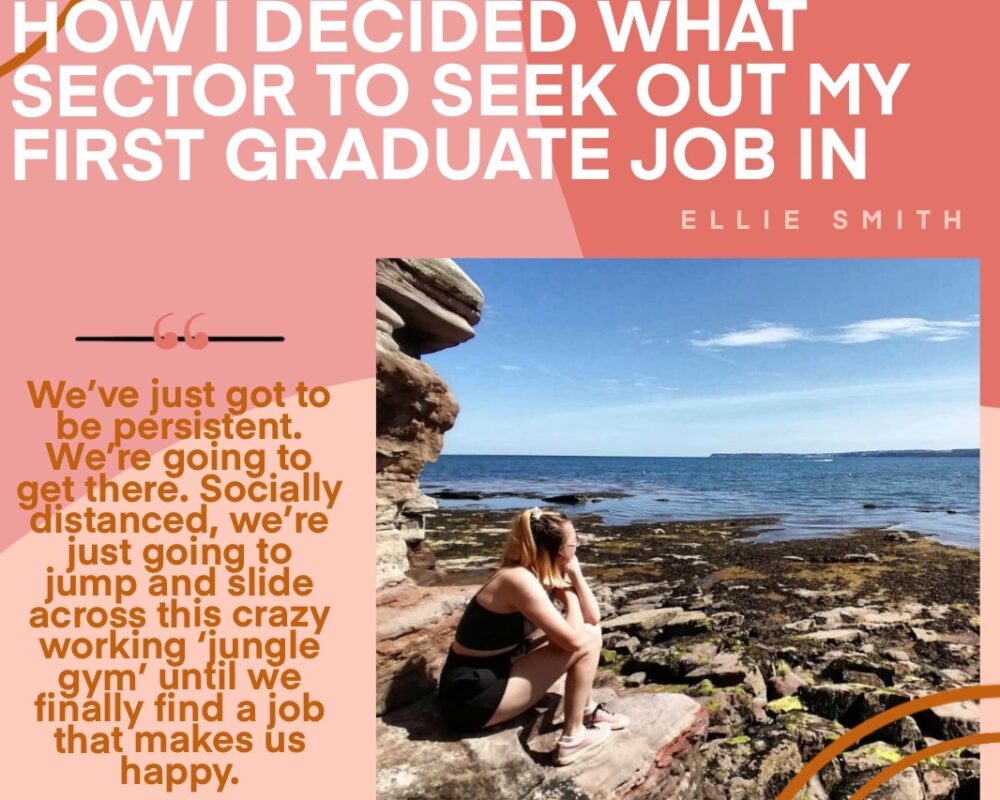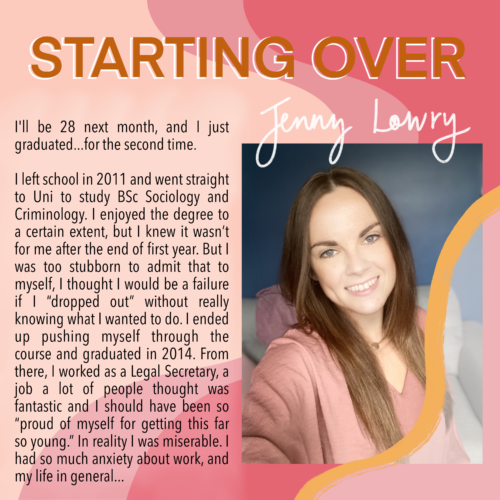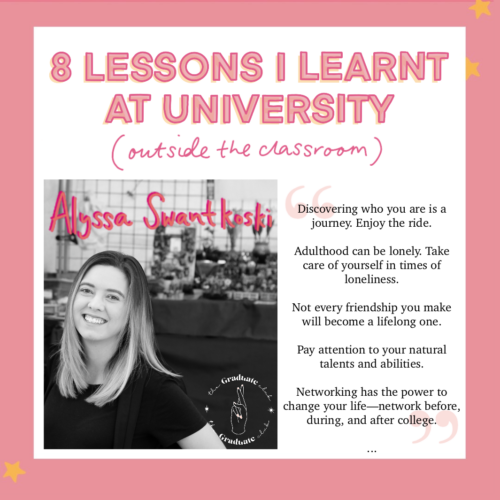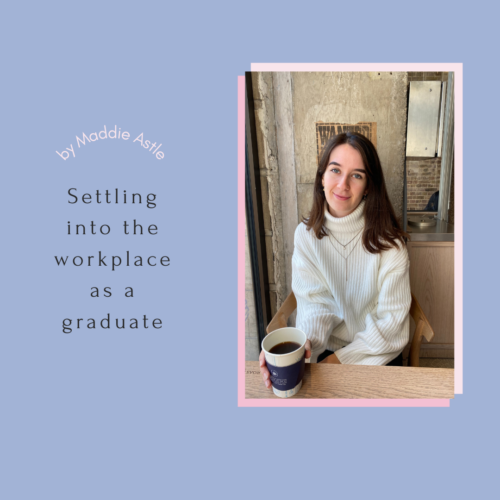by Ellie Smith
There are too many differences to even begin to compare our parents first job search with our own. The internet (and a technological revolution) has ensured that our experiences are dynamically different. I’ve read an onslaught of articles declaring that millennials no longer face a ‘career ladder’. For millennials and Gen-Z, we apparently face a ‘jungle gym’ – and, considering the pandemic, the career ladder for 2020 graduates is a ‘jungle gym’ coated in oil, WD40 and a little bit of butter too.
Menacing graduate employment and income statistics always loomed in the background of my decision to study English at university; who in the humanities hasn’t had multiple relatives tell them that they won’t be employable? Naïve and eighteen, this didn’t matter to me. I liked literature more than anything else, and I knew that I’d forge my own career path regardless of where the supposed gaps in the labour market lay. I didn’t realise how difficult it would be to decide the sector I wanted to work in after graduation. Just like trying to develop a career, deciding what job I want to do has been like an ungainly clamber across a jungle gym too. Here’s the three-year process of deciding my graduate career direction (so far!).
When I arrived at university, I decided that I wanted to work in museums. I trotted to the university careers centre with a readiness that only Freshers have. I fired volunteering applications to the historic sites in the city centre but, frankly, after a couple of months, I found museum work horrifically boring. I was privileged to volunteer in beautiful buildings, but I had learned oodles of fascinating facts to be predominantly faced with the question ‘where are the toilets?’. It felt like I was volunteering as a glorified sales assistant. I knew that I would be paid if I had essentially the same role in a supermarket – even if the surroundings at Asda were much less interesting. Many of the staff had niche MA degrees for entry level positions and (pre-pandemic) I didn’t want to seek a career where there was such stiff and highly qualified competition for minimum wage. Museum work, I realised, wasn’t for me.
I ruminated some more on what I wanted to do. Next, I decided that I wanted to teach English as a foreign language (TEFL). I took rudimentary courses in French and Danish, eager to be more involved in foreign languages. I studied abroad in Denmark. I worked in a range of roles mentoring international students. I initially thought that I’d be happy working in remote places and going on starlight adventures with strangers – but then, having subsequently experienced culture shock and homesickness, I realised that I’d just been watching too many coming-of-age films and romantic dreams aren’t what career aspirations should be based on.
I transitioned my career aspirations to UK teaching and I began volunteering in a local college. I had always experienced English lessons as a creative outlet, but I doubt any of the students experienced anything creative in this classroom. The class was full of students resitting their English GCSE – some students for the fifth time. Their lessons were repetitive exam preparation. Practicing exam technique, memorising exam terminology. It was clear why: these students were legally required to keep sitting this exam to be eligible for their college courses, so their interest wasn’t in the subject and the whole purpose of the class was to pass the exam. I could see the challenges the teacher faced in making this rote preparation interesting. I am still interested in teaching, but this experience highlighted that I want much more classroom observation before I can commit to the career; teaching English should be creative and I need to know that England’s new exam formats have the capacity to be taught as creative subjects.
Having realised that I need creativity within a career, I fell upon marketing. I really recommend the free marketing MOOCs on FutureLearn! Organised by Accenture, they’re great introductions into the sector. I’ve started volunteering as a social media content creator and I’m enjoying it so much. When I’ve finished creating projects on software like Canva, I genuinely feel so elated. I’m currently seeking work as a Digital Marketing Assistant, and I’m hoping this ‘jungle gym’ of career exposure during university is going to help propel me into that first position.
I have bounced from career idea to career idea in deciding what I want to do as a career. For 2020 graduates, I think this is what we’re going to carry on doing. Our career paths aren’t going to be linear, but that doesn’t mean we’re not going to be successful. We’ve just got to be persistent. We’re going to get there. Socially distanced, we’re just going to jump and slide across this crazy working ‘jungle gym’ until we finally find a job that makes us happy.





Leave a Comment